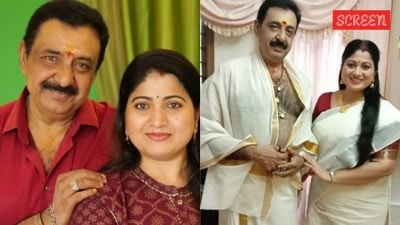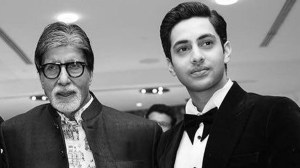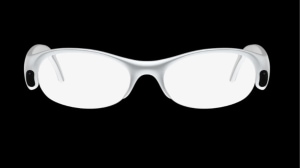US elections 8212; It8217;s about style
This is election time in the US. The populous state of Texas is the hub of activity in this year's race for the presidency. Its popular Go...

This is election time in the US. The populous state of Texas is the hub of activity in this year8217;s race for the presidency. Its popular Governor, George W. Bush Jr, is the Republican candidate giving the Democrats8217; Al Gore a run for his money. Watching George Bush quot;preparequot; for his performances in the month-long theatre of pre-election presidential debates offers a peep into the functioning of the US democracy and the Americans8217; expectations from their rulers.
In a country where the economy is doing well and life is comfortable, people don8217;t really care much for the issues that politicians raise. The electorate is increasingly less informed and disaffected from politics. The media8217;s last-minute imaging of candidates and their performances in nationally televised debates become decisive factors that determine voting patterns. Thus debates are taken seriously by candidates who give due attention not only to the contents of speeches but to their physical appearance, style, delivery, wit and humour.
It is thus not surprising that the presidential candidates literally go into retreat rehearsing their performance in dummy debates with fictitious opponents. They also employ teams of supporters to practice answering questions and beauticians to groom them for the spectacle. During the debates, attention is also paid to project the symbolism of family background, age and experience that voters give high priority to in making their choice. The Americans not only want a well groomed President but one who is also an archetypal quot;family manquot;. George Bush Jr practiced his debate at his family ranch at Crawford. This carefully chosen locale 8212; the ranch 8212; is the symbol of his very provincial Texan family moorings. Bush was assisted there by several aides including Senator Judd Gregg who played the role of his rival Al Gore in the dummy debates. To back up his quot;back to the rootsquot; image he touted quot;family agendasquot; in his speech. The emphasis was on quot;family orientedquot; television time and filters in schools andlibraries to control what children see on the Internet. Working parents were also lured by his announcements of more flexible work schedules for them. His Texas model of quot;politics by consensusquot; was highlighted as his achievement.
The reference point to Texas notwithstanding, the Texans have mixed feelings about Bush. At one level, he is no doubt seen as a quot;compassionate Conservativequot;. Thus for instance, unlike other Republicans, he supports amnesty directed at immigrants who have been working in the US for many years. This has made him popular amongst the immigrant population of Latinos and Hispanics in Texas. He has of course earned this image as a result of the compulsions of working with a legislature that is equally divided between the Democrats and Republicans. The Republican image was bound to be diluted as quot;consensual politicsquot; became the need of the hour.
On the other hand, Bush may not have been necessarily anti-Black and anti-women, but the major ethnic minorities of Texas Latinos and Hispanics have reasons to not vote for him. Latinos make up only 8 per cent of his appointments though they constitute 30 per cent of the population of the state. Their living standards has fallen in his governorship and their unemployment rate sits at 14 per cent as compared to the 4 per cent national average. Also, wages are lower in Texas than the rest of America.
It is these fears that increase his drive to project himself as not just a successful Texas Governor, but also a man not to be dismissed because of his young age, inexperience in national politics and the fact that he is often seen cashing on his father8217;s name.
He takes care in his debates of all these concerns since the pendulum swings on either side as far as these issues are concerned. To counter his inexperience and young age charge he has the elderly, experienced former Defence Secretary of his father, former President Bush Sr, as his vice presidential candidate.
Yet it is not all about style. There is substance in the promises of tax cuts and private sector solutions to social and economic problems and the much awaited military reforms. But when the electorate has enough and more to eat and splurge, earn and travel, it is ultimately style that will decide the victor on November 7, 2000.
The writer is visiting professor, University of Texas, USA
- 01
- 02
- 03
- 04
- 05































